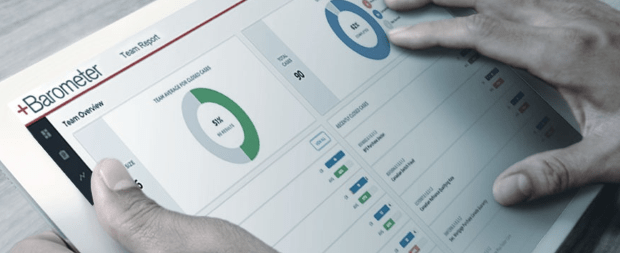The IT industry’s first infrastructure-agnostic SaaS-managed container solution has hit the market.
Platform9, a cloud infrastructure company, has announced that its Managed Kubernetes system, which can be used to manage container clusters, is now fully available. It can be deployed and managed entirely as a SaaS solution and allows DevOps and IT teams to integrate across any combination of cloud platform or on-premises infrastructure without changing any coding or worrying about backend configuration and maintenance.
Kubernetes is a container cluster management system originally developed by Google for managing its own internal servers that has since been open-sourced, according to Platform9. Kubernetes quickly became popular within the open source developer community, “as it enables deployment and operation of containers and orchestration of containerized applications at scale,” Madhura Maskasky, co-founder and vice president of products at Platform9, tells CDN. “The platform has robust capabilities, but it is also known for its steep learning curve.”
Sirish Raghuram, CEO at Platform9, says in a press release from Jan. 24 that with this SaaS-managed delivery, Kubernetes is now accessible to a much larger audience “at a time when many development teams are committing to microservices as their cloud-native development paradigm.”
“While enterprises will be running virtualized workloads on OpenStack for years to come, there’s growing demand for platforms that offer a choice of virtualization, microservices or both,” he continues. “Microservices in particular require a more intuitive, managed approach that reduces time-to-value for Kubernetes projects and work on any choice of infrastructure: on-premises, in the cloud or across multiple clouds.”
Platform9’s Managed Kubernetes service is fully integrated and can run anywhere (such as AWS, Microsoft Azure and Google Compute Engine), is 100 per cent pure-play to avoid vendor lock-in, and creates “Kubernetes clusters that can span across availability zones in your private or public cloud environment,” meaning potential failures in one or more zones can be tolerated.
“Managed Kubernetes provides significant value to companies that are serious about use of containers because it eliminates the complexity of managing the container orchestration layer, while running on any infrastructure,” says Kuldeep Chowhan, cloud architect at Expedia.
And since Platform9 uses a SaaS managed solution to deliver Kubernetes as a service, this allows users to avoid time-consuming issues such as “configuration, health monitoring, management and updates/upgrades of Kubernetes,” Maskasky explains to CDN. “Our SaaS hosted control plane lets you deploy Kubernetes on private or public infrastructure of your choice, then fully automates delivery and lifecycle of Kubernetes clusters.”
It is also offered as a peer service to Platform9’s Managed OpenStack, “giving customers the freedom of choice across both,” the company says.
Additionally, the company also introduced Fission, a new open source and serverless framework built on Kubernetes, to simplify operations.
“It provides a simple, serverless interface to leverage Kubernetes, enabling DevOps and IT teams to write REST-based application backends, event-driven automation or custom application controllers,” Platform9’s press release explains. “Instead of taking weeks to realize the value from Kubernetes’ powerful abstractions, developers can now deploy simple REST functions to Kubernetes within hours.”
Fission is an open-source project – under inception with the Cloud Native Computing Foundation – and can run anywhere Kubernetes can run.





